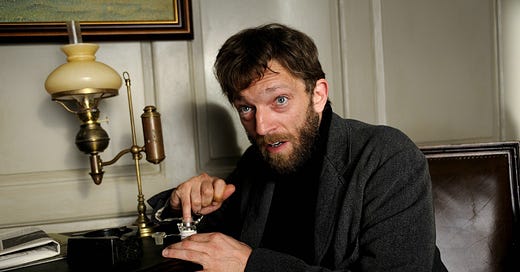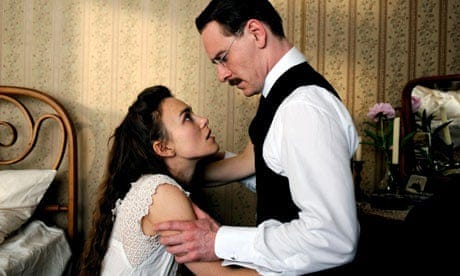Thank you for reading — before you continue, it would be amazing if you were able to donate whatever you’re able to help support the purchase of eSIMs for people in Palestine.
I finally bought a copy of Eliza Clark’s She’s Always Hungry — a book that’s been perhaps my most anticipated recent release, especially because (due to my own depressive malaise or any actual decline in quality), nothing else published recently seems to be quite hitting. I loved Clark’s debut Boy Parts to bits, and, in another exercise of inserting my own interests into assessments of the book’s utility and achievements, it dragged me out of a huge reading (and writing) slump, and in Penance, I think she outdid herself in more ways than one — style, scale, ambition, prose, characterisation, structure, everything. I was obsessed from the first page and read it quicker than I’ve read most things, inhaling (sorry) it like a teenager with school the next day.
So naturally, I was excited for She’s Always Hungry, especially because the title, the press, the buzz, and Clark’s existing oeuvre all highlighted the book’s investment in being really freaky and gross and daring — things I not only relish as a reader (and could stand to seek out more of, please give me your recommendations, chat link below), but also things I’m trying harder to engage with less stupidly and more curiously as a writer.
On the subject of a lot of recent books having bored me recently (and it’s quite likely this is just an incurable character flaw in myself), I also recently gave Porn: An Oral History by Polly Barton a go. I was drawn to it initially (obviously) by the (admittedly quite clickbaity, in hindsight, sorry) title, and also because a few people whose opinions I trust (and often try to shamelessly appropriate) were reading it. I was interested in the idea of a history of porn, and genuinely didn’t look much further into the book’s substance before buying the gorgeous Fitzcarraldo copy for approximately ten billion dollars.
When I finally got around to reading it (which I’ve not done much of, yet, in fairness), I was kind of disappointed by the extent to which it seemed to be a very… pointless text, in the sense that the author seems to be purposely disqualifying herself from writing it for some reason, seeming to think this makes it uniquely insightful for her to do so. It’s just very different from what I expected, and seemingly based on personal, uninteresting (sorry) experiences with minimal criticality. I may be really wrong, but this was my vibe check.
I’ve also been reading Death Glitch by Tamara Kneese. It’s obviously a startlingly interesting premise from the get go, but, like Porn, seemed to fall flat a bit. I’m a bit over halfway through and I’m having trouble keeping going, largely because I feel like so much of the book is a re-hashing of fairly intuitive and instinctively explainable ideas repackaged (somewhat needlessly, extremely repetitively) into deeply sterile academic prose. Nothing in the book feels inaccurate or unimportant, but the style is extremely hard to get through — the kind of repeated Uneven U type structure that I have only ever found in undergraduate essays. My friend Prem said it’s better read an essay at a time every once in a while rather than as a continuous read, which feels like good advice, but if I’m honest I’d rather get it over with.
Coming back to Eliza Clark for a minute, I was recently reminded of her newsletter Eliza Clark’s Wikipedia Hole, which was exactly what it sounds like. I’ve never had the patience or generosity to catalogue my own wikipedia rabbitholing in this way, so I always admired the practice, and spending unholy amounts of time opening tabs and clicking links on wikipedia dot com remains one of my favorite pastimes.
So as a budding Cronenberg fan (speaking of being freaky and gross), when I recently watched A Dangerous Method, which had been on my watchlist since I discovered its existence, I ended up jumping into a particularly in-depth rabbithole. This was partly because, as part of my recent entanglements with an attempt to write a PhD proposal, I’d been on all these pages before — but I was now looking at them differently, assigning images to their relations, feeling grief at the descriptions of their deaths. To quote Arlette Farge again, “history remains first and foremost an encounter with death”.
Eugen Bleuler, who’s virtually nameless in the film, I learned, coined the term “schizophrenia” (previously called “dementia praecox”, or premature dementia), and countless other conceptions of mental illness that continue to shape the field (and our understandings of it) to this day. What I found more personally significant, though, was the life and history of Otto Gross, whose arc in the film is possibly the most intriguing thing about it. Reading about his time at the Ascona community, his anarchism, and his ostracisation from the intellectual movement of psychoanalysis, I felt genuine pain and sadness and grief. I don’t know what to do about this. According to his Wikipedia page, “Gross died of pneumonia, possibly related to drug addiction, in Berlin on 13 February 1920, after being found in the street, near-starved and freezing.”
As of this writing, israel has intensified its genocidal campaign of destruction in Gaza, and hundreds of Palestinians have been killed in the last day itself, including, as before, children. Please consider donating what you can here to help keep people connected.






